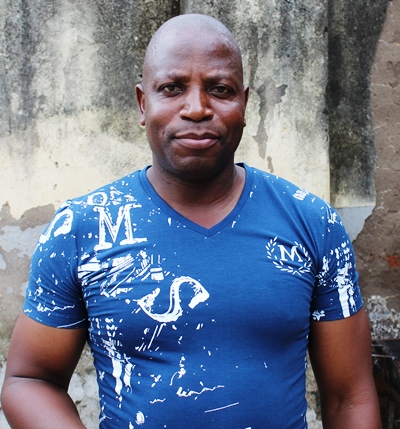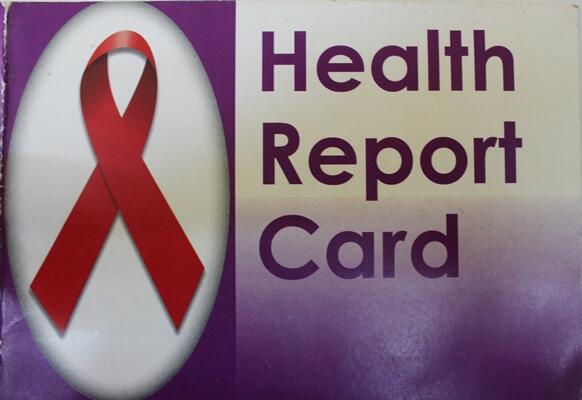Lilongwe-The arrests of sexual workers by the Police have halted. For the police officers that defy the agreement and still go ahead to arrest them under the law of rogue and vagabond, the magistrate acquits them and they pay no fine. If the sex workers contract any sexually transmitted infection, they have their point of contact at the district hospital. They meet fortnightly under the Tidziwane group, share condoms and conduct peer education sessions. This is a story of sex workers that are based in Dedza, a district where UNFPA has been supporting sex work interventions through Pakachere Institute of Health and Development Communication.
Ndaziona Kamisa is 23 and comes from Chitipa district, more than seven hundred kilometres from Dedza going north. She has one child, a girl named Miracle who was born in 2013. She has been living in Dedza since 2011 and she has no desire to move to another district. “We were harassed, sexually abused and arrested for being found in clubs and bottle stores; we would be taken to police and then to court and pay a fine eventually, this was common”, she narrates her previous experiences.
Since Pakachere with funding from UNFPA brought together the sex workers, health workers, the police and magistrates were oriented on the laws of rogue and vagabond as well as the rights of sex workers, the arrests stopped and the police are working together with the sex worker to fight crime. With the participation of health workers from Dedza district hospital, sex workers are now able to walk freely to the hospital and get treatment for sexually transmitted infections and other ailments they often suffer.
“At the beginning, some health workers would stigmatize and laugh at us and we would come back without treatment and eventually we would not go again. Things have changed now because we just walk into the office of our contact at the hospital and we get all the treatment we need, this a great improvement”, says a 30 year old Alice Matambo, chairperson of the Tidziwane group of sex workers in Dedza district.
The group has more than 30 registered members and attendance during meetings is usually between 15 and 25. “We were given special passport books for use at the hospital and this has helped us to access health services without any problem”, she says.
Alice Matambo came to Dedza in 2006 and she has never moved to another district. She has an 11 year old girl named Jasinta who stays with her dad in Blantyre, some 250 kilometers from dedza. As a chairperson, she distributes condoms to fellow sex workers and promotes empowerment amongst her colleagues. “I encourage my colleagues to use condoms and access health care services including HIV testing and counselling at the hospital. Our job is risky and we have to fight a lot of challenges including men who offer more money in exchange of unprotected sex, and I tell my friends not to risk their lives”, she explains.
By working with the Police, they now feel safe and can ply their trade without fear of being arrested just for being found in drinking and entertainment places. Sub Inspector Richard Mtengula is the HIV and Aids Coordinator at Dedza Police station and he was trained together with the sex workers and the magistrate. “Our relationship with the sex workers here has been good and improved since the trainings were conducted, the unnecessary arrests of sex workers stopped and in an event where another police officer who is not aware of this relationship arrests them, I work with the magistrate to release them without a fine”, he explains.

“These girls need protection because their job is challenging and the police have helped them significantly; I offer them a place to meet for free and discuss their challenges as a group” said the owner of Zabwino bar in Dedza where Alice and Ndaziona are always available.
This is an example of a UNFPA Malawi initiative to ensure sex workers enjoy their full rights and are able to access sexual and reproductive health services without being stigmatized.
Sex work in Malawi
In the FPAM 2011 report titled ‘counting the uncatchables!-Report of the situation analysis of the magnitude, behavioural patterns, contributing factors, current interventions and impact of sex work in HIV prevention in Malawi - the FSW group is described as similarly difficult to characterize. The report estimate that there are approximately 20,000 sex workers nationally representing 0.5% of the adult female population. This is significantly lower than estimates from other studies in Eastern Africa and incompatible with size of the ‘clients of sex workers’ group, if each sex worker had approximately ten different clients annually.
The lack of accurate data on sex workers population, sex work interventions in Malawi is incomprehensible due to gaps in population size of sex workers, knowledge levels, practices and behaviours relating to HIV and AIDS in order to inform effective programming. Both the 2011 FPAM report and the BBSS 2006 report suggest that the prevalence of HIV among FSW is about 70%.
Sex workers are often arrested by Malawi Police under rogue and vagabond law. The law enforcers usually carry out night raids and arrest anyone found loitering in entertainment and public places, and sex workers constitute the majority of those arrested. Once arrested, the people are charged with minor infractions such as being found Idle and Disorderly, or Rogue and Vagabond, crimes that generally do not exact harsh punishment
This result in sex workers do their work under cover and fail to access health services as a result become potential sources of HIV infection in major urban areas, major transport routes, commercial agriculture areas, tourist destination sites, border areas, places of entertainment and within the communities where they live. The reduction of HIV transmission among SWs and their clients can, therefore, limit the spread of HIV to the general population.


